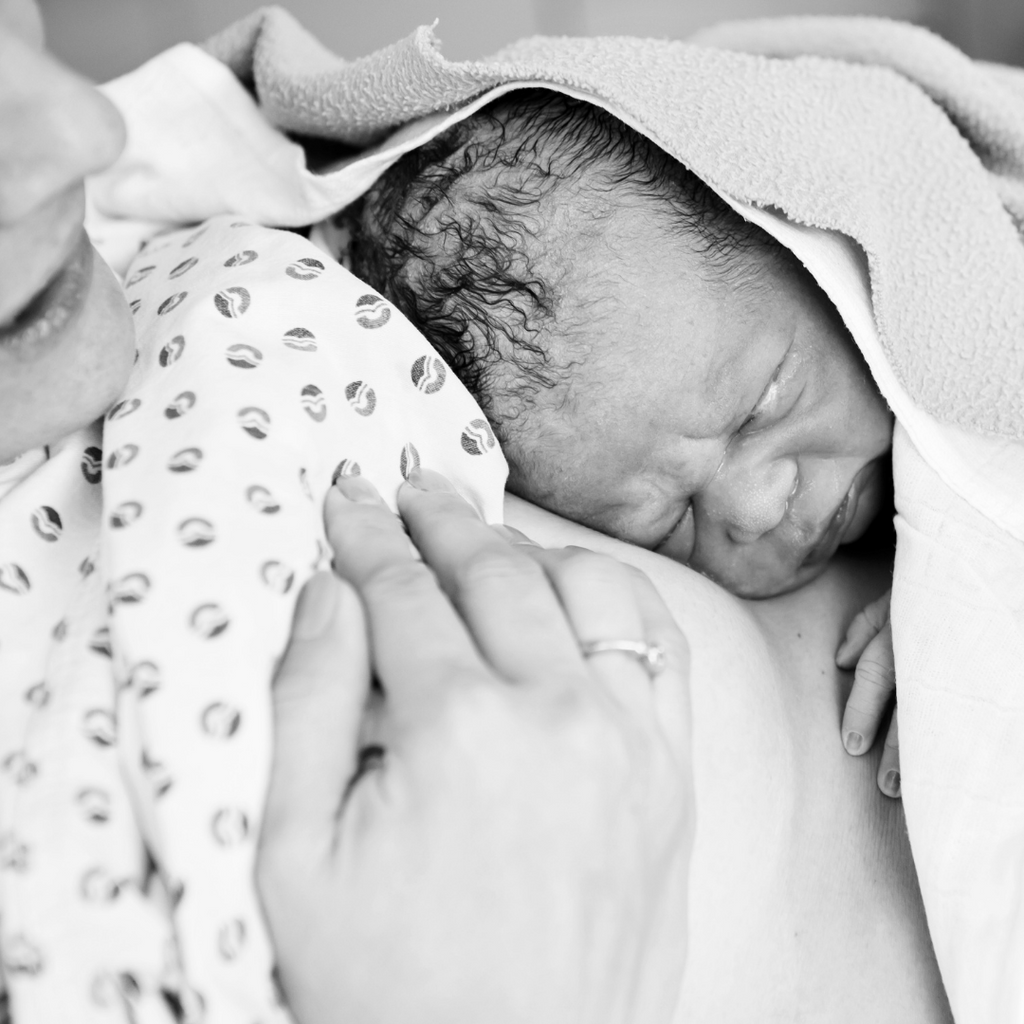Skin-to-skin is one of the most important things you can do to give your baby the best start in life. The practice - also known as ‘Kangaroo Mother Care’ (‘KMC’) has been used for centuries by countries in Africa. However, it started to gain recognition in Western culture around the 1970s, when researchers began to link skin-to-skin contact with positive maternal and infant outcomes.
It’s now a proven method of enhancing your baby’s immune system, increasing their ability to breastfeed, improving their cognitive development and strengthening the bond between parent and baby.
COVID-19 and Skin-to-Skin
Now widely recognized by medical professionals and parents alike as a crucial element of child development, a recent study shows how the COVID-19 pandemic is impacting the health - and lives - of newborn babies.
It was found that two-thirds of health workers wouldn’t support skin-to-skin between mothers and their babies if the mother had a positive or unknown COVID-19 test status. Babies are instead separated from their mothers.
This study finds that as well as jeopardizing the bonding process and baby’s overall development, not practicing skin-to-skin actually puts babies at higher risk of death, too.
‘65-fold Increase in the Risk of Death by Not Doing KMC’
New research conducted by the World Health Organization (WHO) and published in EClinicalMedicine estimated that if KMC was accessible to all parents across the 127 countries analyzed, more than 125,000 newborn lives would be saved. Meanwhile, the risk of newborns dying from COVID-19 would result in fewer than 2,000 deaths. Together, this shows risk of death is at least a 65-fold higher increase in the risk of death by not doing KMC.
Skin-to-skin is particularly important for preemie or low birthweight babies. The same study shows that it can reduce infant deaths by as much as 40%, hypothermia by more than 70%, and severe infections by almost two-thirds.
This research further provides how important it is that parents and their babies are kept together directly after birth, as well as into the Fourth Trimester (and beyond). The Joeyband exists to facilitate skin-to-skin contact safely, so you and your baby can get the start in life - and parenthood - that you both deserve.
Joeyband™ in Hospitals
The Joeyband™ is used in over 200 hospitals across North America to facilitate safe skin-to-skin contact and assist with baby care. Mimicking the womb, the Joeyband™'s unique elasticity is something you won’t find with other skin-to-skin products. It hugs baby to you, maximizing contact and ensuring your baby stays in a safe position. This is naturally soothing for both baby and parent, and babies held this way are 12 x less likely to cry.
Kelley Reddington, a Labour and Delivery Nurse Manager, explains how the Joeyband™ has assisted skin-to-skin contact during the “golden hour” after birth. “All of our Moms may use the Joeyband in their postpartum room to facilitate that bond necessary for breastfeeding success, with the added benefit of infant fall prevention”, she says.
Kelley participated in the study, Utilizing Joeybands During Postpartum Period to Increase Exclusive Breastfeeding, Patient Satisfaction & to Decrease Infant Falls. The results show over an 8% improvement in babies exclusively breastfeeding after using a Joeyband™ with mom. There were also zero infant falls during the study, and patient satisfaction was up 26% on the Press Ganey Overall Rating of Care.
Acting as a natural incubator, having their parent's warmth from skin-to-skin contact also enables babies to stabilize their body temperature, regulate their heart rate and breathing, and maintain a healthy blood sugar level.
Are you expecting a baby, or maybe you have a newborn? Follow us on Facebook or Instagram, or subscribe to our newsletter for our latest news and updates, or for more useful, baby-handling knowledge from our experienced Joeyband™ team.

